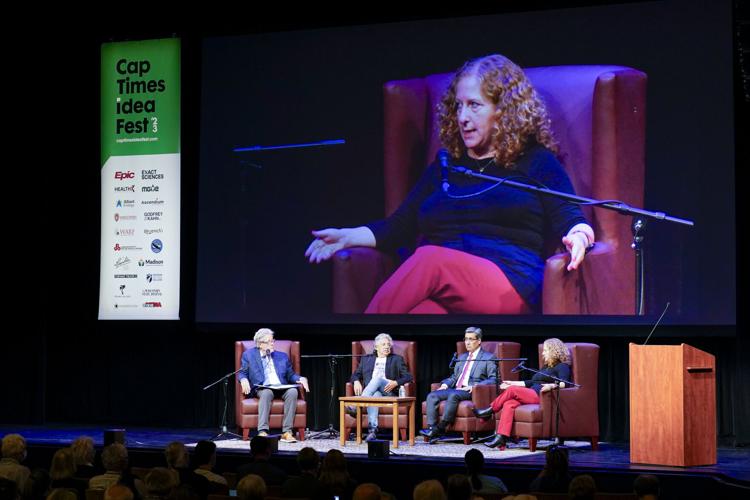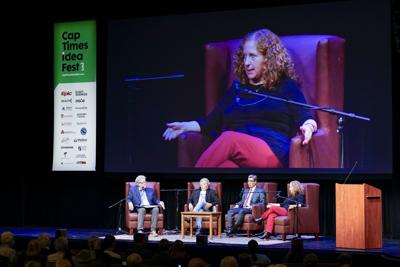Paul Soglin recalls University of Wisconsin-Madison’s record on free speech as uneven.
A student activist in the 1960s, Soglin was beaten by police during protests against the Vietnam War and later became the lead plaintiff in a free speech lawsuit against the university.
“At this juncture, despite that history, the situation is worse than ever,” said the former Madison mayor, referring to current threats to free speech on college campuses. “The battle is never-ending.”

Former Madison mayor Paul Soglin said threats to free speech on campus are "worse than ever."
Soglin spoke alongside UW-Madison Chancellor Jennifer Mnookin and University of Wisconsin Law School Dean Daniel Tokaji on a panel for Cap Times Idea Fest Tuesday night. Moderated by David Maraniss, a Madison native and Washington Post editor, the panel discussed UW-Madison's history of free speech and how the campus continues to confront such issues.
One challenge is that students today have a different understanding of free speech than older generations, many of whom associate it with the labor movement, the Civil Rights movement and protests against the Vietnam War, Tokaji said.
“When (students today) hear about freedom of speech,” he said, “it’s often our telling them why we can’t do what they want us to do. They don't have that context that many of us have with respect to free speech and its centrality to achieving progressive social change.”
In May, thousands on campus called for the expulsion of a student who went viral for spewing racist slurs in a video. Campus administrators told students they were bound by the First Amendment — the student’s speech was legally protected.

David Maraniss moderates Tuesday night's panel on free speech on campus in Shannon Hall.
“It felt, to some, like we were protecting the racist over our own students,” the chancellor said. “Of course, that was in no way our intent. The positive thing is that this horrible incident has begun a set of spaces for important conversations.”
Mnookin said the campus must balance its legal obligations while also cultivating belonging for underrepresented students. Those two concepts can clash when someone uses hateful rhetoric, she said, but “we can try to create a culture where actions like this are hopefully extraordinarily rare.”
Part of practicing free speech also means teaching students how to engage in civil discourse, the chancellor said, adding, “I don't think that our students arrive having had a lot of practice."

UW-Madison Chancellor Jennifer Mnookin said the campus must balance its legal obligations while also cultivating belonging for underrepresented students.
“There are a lot of people who are big defenders of free speech when it comes to their ability to speak their truth,” Mnookin said. “But when they hear things that they find deeply troubling, offensive, wrongful, even hateful, their reaction is to think that it needs to be silenced — not just condemned … but canceled.”
Referring to Republican attacks on diversity, equity and inclusion efforts at the state’s campuses, Soglin said political interference can also have a “chilling effect” on academic freedom and free speech.
“Now there’s a move in this country, at all levels of education, to interfere in the classroom,” he said, “which is reminiscent of some of the worst characteristics of fascist states.”

UW-Madison Law School Dean Daniel Tokaji said, “It's one thing to admit students who represent a wide range of identities, backgrounds, experiences and perspectives. It’s quite another to make them all feel welcome here, to make them feel genuinely that they belong.” That takes more work, he said.
It’s a challenging moment “to support both free speech and belonging in a time of intense polarized politics,” Mnookin said. Yet it’s also why DEI programs are so important, Tokaji said.
“It's one thing to admit students who represent a wide range of identities, backgrounds, experiences and perspectives. It’s quite another to make them all feel welcome here, to make them feel genuinely that they belong,” he said. “That's going to take more work with some of our students.”











